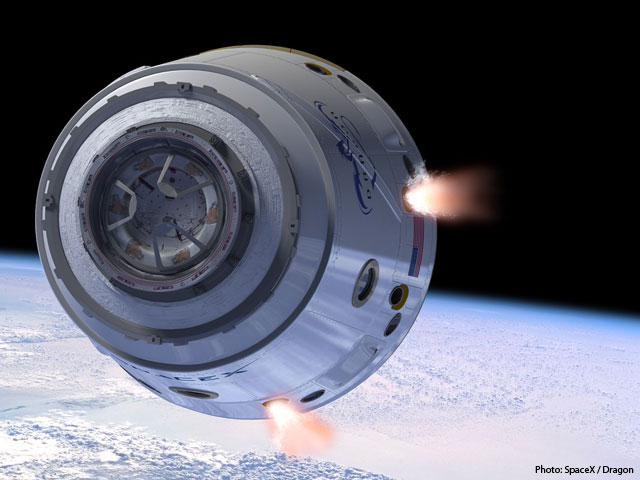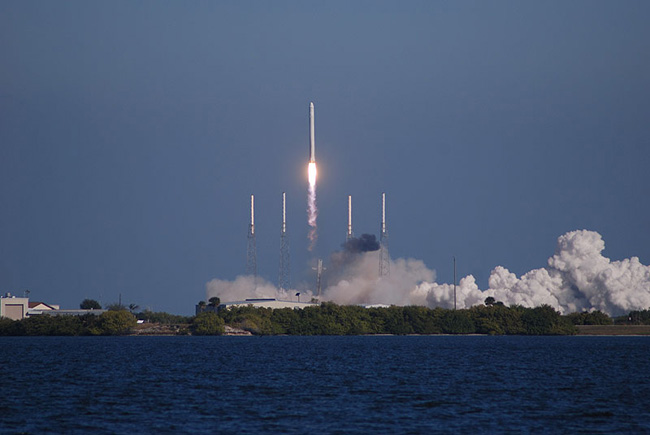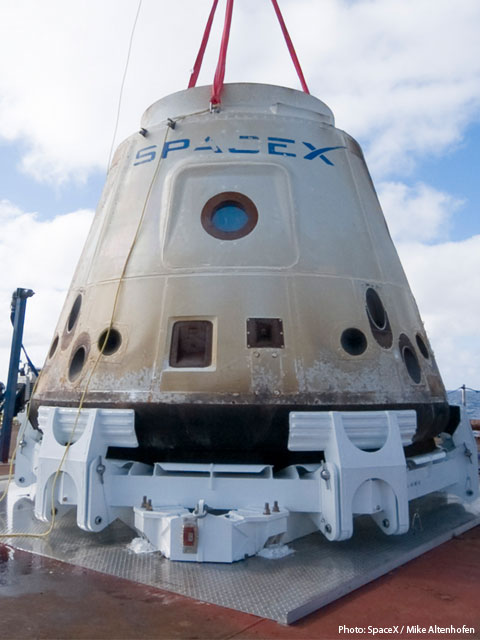Private Rocket Firm Under Pressure to Fill Space Shuttle Void

COLORADO SPRINGS, Colo. – Private rocket builder SpaceX is trying to speed up testing of its new Dragon spaceship to enable it to visit the International Space Station on the next demonstration flight.
With NASA's space shuttle programset to retire later this year, the pressure is on for commercial providers to compensate for the loss of the shuttles' enormous cargo-carrying capability.
"We have a very serious responsibility here because the space shuttle is coming to a close," SpaceX founder and chief executive Elon Musk told reporters here at the 27th National Space Symposium Tuesday (April 12). "What we've been told by NASA is that if we don't reach the space station by the end of this year, there's a risk that they will have to de-man the space station next year. We've got to be sure that we get to the space station. That is very much our primary focus." [Photos: SpaceX's Falcon 9 Rocket]
SpaceX's demonstration flights are part of NASA's Commercial Orbital Transportation Services program, which is designed to stimulate the development of private vehicles capable of ferrying cargo to the space station. As part of the COTS program, NASA is offering SpaceX $278 million for successful demonstration tests of a vehicle and hardware that are up to the task.
SpaceX's Falcon 9 rocket and Dragon capsule completed a successful first demonstration flightunder the COTS program in December 2010. That mission marked the first time a commercial company had ever launched a spacecraft to orbit and then safely retrieved it after landing.
The next test flight most likely will occur in late September or early October, Musk said.
The unmanned Dragon spacecraft is being developed as a cargo vessel to deliver supplies to the International Space Station under a $1.6 billion deal with NASA. The contract calls for 12 SpaceX Dragon flights to the space station through 2016. [Infographic: Inside SpaceX's Dragon Capsule]
Get the Space.com Newsletter
Breaking space news, the latest updates on rocket launches, skywatching events and more!

On its first demonstration flight, the Dragon capsule launched into orbit on SpaceX's own Falcon 9 rocket on Dec. 8, circled the Earth twice and splashed down in the Pacific Ocean.
In its current configuration, the Dragon capsule is also capable of ground landings, Musk said. While such landings would require some subsequent repair work on heat shield tiles, the capsule would experience loads that are "less than loads that parachuters experience," and would still be reusable, he said.
Ultimately, however, SpaceX hopes to modify the Dragon so that it can make vertical propulsive landings, similar to the way the Apollo program's lunar modules landed on the moon.
"Long term, our goal is not only to land on land, but to land propulsively," Musk said. "For maximum reusability, you want to land propulsively."

In addition to the company's work on cargo delivery, SpaceX has submitted a proposal to NASA's Commercial Crew Development program to begin developing a version of the Dragon capsule to carry humans into orbit.
SpaceX also recently announced plans to develop a new unmanned heavy-lift rocket that would be the most powerful commercial rocket ever built.
The rocket, called the Falcon Heavy and described by Musk as "a Falcon 9 with two additional first stages," would be able to carry about three times as much mass as the Falcon 9 boosters can.
You can follow SPACE.com staff writer Denise Chow on Twitter @denisechow. Follow SPACE.com for the latest in space science and exploration news on Twitter @Spacedotcomand on Facebook.
Join our Space Forums to keep talking space on the latest missions, night sky and more! And if you have a news tip, correction or comment, let us know at: community@space.com.

Denise Chow is a former Space.com staff writer who then worked as assistant managing editor at Live Science before moving to NBC News as a science reporter, where she focuses on general science and climate change. She spent two years with Space.com, writing about rocket launches and covering NASA's final three space shuttle missions, before joining the Live Science team in 2013. A Canadian transplant, Denise has a bachelor's degree from the University of Toronto, and a master's degree in journalism from New York University. At NBC News, Denise covers general science and climate change.









